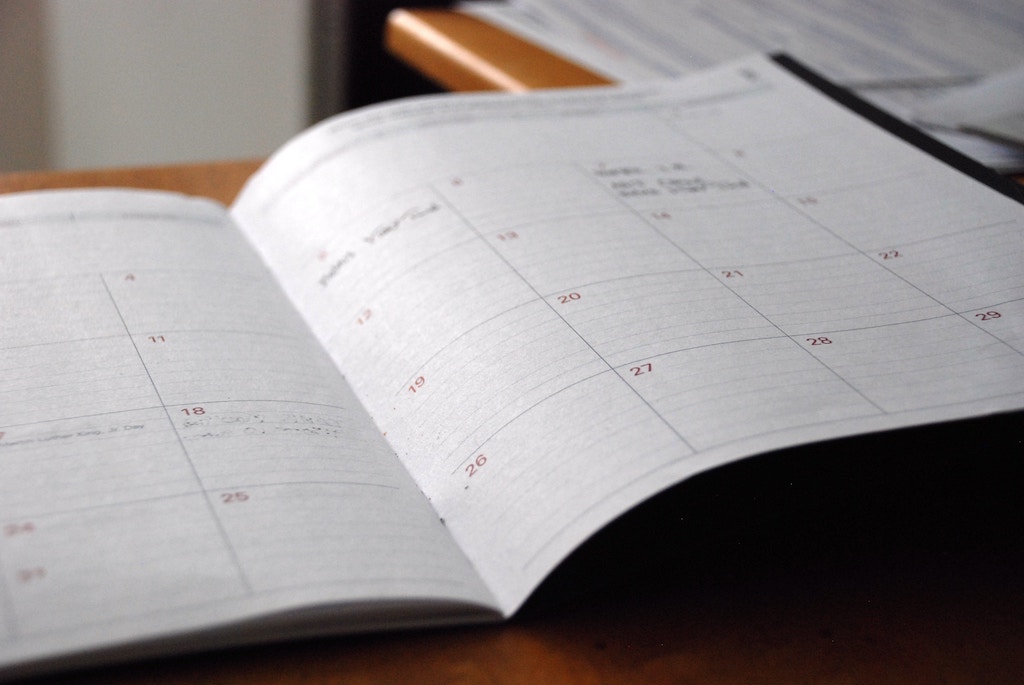“Take care of the minutes and the hours will take care of themselves.”
I read this quote by Lord Chesterfield right when I was at the peak of finishing my thesis, and it helped me realign my understanding of time in relation to accomplishing tasks. By doing the smaller tasks first and saving the harder tasks last, I was able to tick more checks on my to-do list, which gave a more satisfying sense of productivity. Each minute was precious, and each added 60-second mark was an additional percentage to the amount of work completed. Before I knew it, the to-do list was done with a little more time to spare.
However, what works for me may not work for other people. Each person’s efforts for effective time management depends on the deliverables expected in their line of work. What is expected of a teacher is different from that of a doctor. There isn’t a universal guide to good time management, so as much as we take comfort in general reminders, it’s best to hear it straight from the people who are experiencing the same kind of tasks.
To help you do so, we’ve gathered a few of our friends and colleagues from different professional backgrounds to share tips on how they get the job done.
For coordinators, finish one task at a time
“My work is very project-based, and we usually have two or three projects happening at around the same time frame. Given that, you’re expected to multitask a lot. However, I hate multitasking because I end up feeling confused. Like I’m stretching myself out too thin. I prefer doing (or focusing) on things one at a time since it makes the most sense for me. I also list down everything I have to do for the day because it helps organize and prioritize what to do!” Ponchi Plata, 22, project coordinator

For teachers, do tasks ahead of schedule
“As a preschool teacher, the workload is pretty light right now. Preschool hours kasi half day lang. I teach two classes and it ends at 2:30 p.m., so I have the rest of the day to do what I want. I usually rest a bit when I get home and at around 6 p.h., I work out and then do chores. Sometimes, I’ll make lesson plans and prep for activities the next day. That’s the thing about teaching jobs. The time is generally predictable and what you do is pretty routine most of the time. Also, for my job, I try to prepare things as early as possible. The tasks we have to do are laid out already for the week because we have lesson plans. So if I’m in charge of doing the activity on a Tuesday, by Sunday night or Monday morning I already prepare for it,” Isabel Arellano, 22, preschool teacher
For managers, follow a strict schedule
“Basically, you are in the office most of the time. So during weekdays, I have a strict schedule. I wake up at seven in the morning to prepare for work, then start the work day at 8:30 a.m. I handle each task and meeting according to the plan I have set the day before and as the day ends, I prepare what I have to do for the next day. When I get home, I still have time to work out for an hour and spend time with family,” John Infante, 33, bank branch manager
For supervisors, help yourself by helping your colleagues
“With the amount of tasks I need to finish, it can be overwhelming if I think of the entire picture. I create a checklist on my phone regardless of how small or important the task is. I finish the ones that need to be finished first. I use our tool systems to execute deployment plans and goals. I also ensure that my partners on duty are set up for success in their work. I see to it that I finish them in a scheduled time frame and rarely do I bring my work home. I maximize my personal time by not doing anything related to work. I set my alarms by the hour during mornings and arrive at work five to 10 minutes earlier. I also allow myself to take personal leaves since it’s a big help to my mental health and overall well-being,” Pierce Santos, 25, shift supervisor and store manager-trainee

For interns, enjoy your work
“As a student, I do the easiest requirements first for the week, including essays and research. The hard ones are the planning and production for our weekly film production class. For my tasks in Scout, I make sure I finish them at the end of the day or if not, during the weekend. These tasks include writing articles and transcribing, which is fun to do. I like it whenever I write about things I’m interested in such as film, comics and music,” Ralph Regis, film student and Scout intern
For analysts, address urgency first
“I always set up my schedule for the day first thing in the morning and try to follow through with it as much as possible. Knowing what I have to do and the urgency of my tasks helps me manage my time wisely. It really depends on the urgency, not necessarily what’s the easiest or hardest thing to do is. Whatever has a closer deadline, I always do first. Lastly, I do my best to be as efficient as possible through finding ways I can be the most effective. I guess trying different things and going around my tasks help me find the best way to work, so I can do more but also save more time,” Ton Samaniego, 23, junior digital associate

For creatives, take every moment as an opportunity to create
“It’s hard to draw the line between work and life because creativity literally does not stop. I just make sure that I treat ‘creative’ work as if it’s a normal nine-to-five job, which has a time limit. Whenever there’s something creative that pops up after ‘work hours,’ I jot it down and face it the next working day,” Allan Soriano, 24, filmmaker
Header photo courtesy of Thought Catalog on Unsplash
Get more stories like this by subscribing to our weekly newsletter here.
Read more:
It’s time we talk about earphone etiquette
How to manage your time in three easy steps
Writer: THEA TORRES




